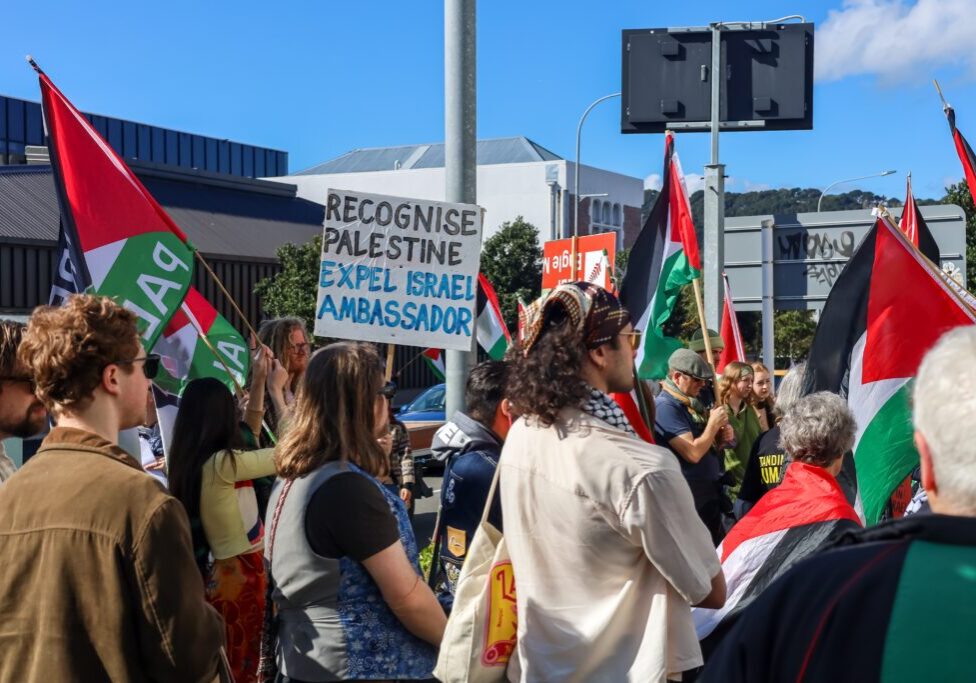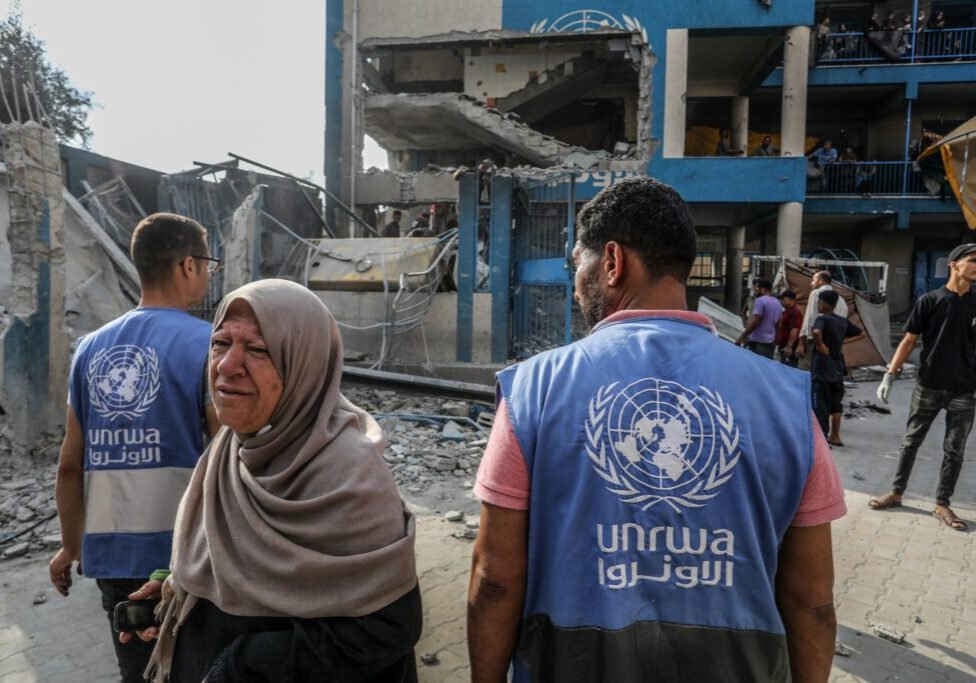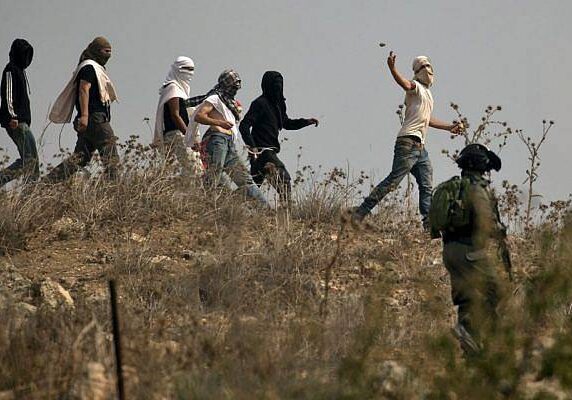Australia/Israel Review
Peace through Security
May 27, 2009 | Gen. Keith Dayton
By Gen. Keith Dayton
On May 7, 2009, Lt. Gen. Keith Dayton delivered the Michael Stein Address on US Middle East Policy at The Washington Institute for Near East Policy’s 2009 Soref Symposium. Gen. Dayton currently serves as US security coordinator for Israel and the Palestinian Authority, a position he has held since 2005. The following is a selection of excerpts from Gen. Dayton’s address.
My name is Keith Dayton, and I head a small team of Americans, Canadians, British, and a Turkish officer who were sent to the Middle East to assist in bringing some order to the Palestinian Authority’s security forces.
The name of our group is the United States Security Coordinators Team – USSC for short – but we are really an international effort…
All of us on the security coordinator’s team share the conviction that the resolution of the Israeli-Palestinian conflict is in the national interests of our respective nations, and for that matter, of the world. Let me state at the outset a few bedrock principles that guide me in my work. First, as I just said, I profoundly believe that it is in the national security interest of the United States to help resolve the Israeli-Palestinian dispute.
Second, I am one of those who firmly believes in a two-state solution: a Palestinian state living in peace and security alongside the State of Israel is the only solution that will meet the long-term needs of Israel and the aspirations of the Palestinian people…
“The third principle, let me state very clearly my deep conviction – and I tell this to my Israeli friends all the time – that as President Obama said last year, the bond between the United States and Israel is unbreakable today, it is unbreakable tomorrow, and it is unbreakable forever…
“The idea in forming the USSC was to create an entity to coordinate various international donors under one plan of action that would eliminate duplication of effort. It was to mobilise additional resources and to allay Israeli fears about the nature and capabilities of the Palestinian security forces. The USSC was to help the Palestinian Authority to right-size its force and advise them on the restructuring and training necessary to improve their ability, to enforce the rule of law, and make them accountable to the leadership of the Palestinian people whom they serve…
Another strong point is that we were given permission from the outset to work with all sides to this conflict except the terrorists. That means we work on a daily basis with both Palestinians and Israelis – something that is unique in the region, believe it or not. My team and I frequently visit Jordan and Egypt and we’ve even been granted permission to coordinate with the Gulf states. We are also networked with all the other missions in the region that work the Arab-Israeli conflict… But perhaps the most important thing about who we are is that we live in the region. We do not parachute in for a few days and then go home. We stay there. In a region where understanding the reality on the ground while building relationships is the cornerstone of getting something done, you have to invest the time, and we’ve done that…
Gen. Kip Ward was the first commander of the USSC… When he passed command to me in December 2005, he said, “Good luck.” Little did I appreciate how much luck I would need, because a month later, Hamas won the Palestinian Legislative Council elections and my mission changed overnight.
For the first 18 months I was there, we faced a situation of either a Hamas government in the Palestinian territories or a unity government led by a Hamas prime minister.
So as a result, we focused on coordinating international activity to help to get the Gaza economy going… And because the Presidential Guard reported directly to President Abbas and was not influenced by Hamas, they were considered to be in the game. But all other security forces suffered greatly from Hamas neglect, non-payment of wages, and persecution, while Hamas went on to create its own security forces with lavish support from Iran and from Syria. In June 2007, as I think most of you know, Hamas launched a coup in the Gaza Strip against the legitimate Palestinian Authority security forces there.
And those Iranian and Syrian-sponsored, well-equipped, well-funded and well-armed Hamas militiamen overthrew the legitimate Palestinian Authority’s security forces, keeping in mind those guys hadn’t been paid for 16 months and they were poorly equipped and poorly trained…
With the appointment of Prime Minister Salam Fayyad and his technocrat government by President Mahmoud Abbas in June of 2007, our focus changed again from Gaza to the West Bank…
The US Administration and Congress provided an additional US$75 million last year, bringing to US$161 million that the USSC has been able to invest in the future of peace between Israel and Palestinians through improved security. So what have we done?
First: Train and equip. Although we work closely with the Presidential Guard even now, we have focused on transforming the Palestinian national security forces into a Palestinian gendarmerie…
The training is a four-month program at the Jordan International Police Training Centre – we abbreviate it as JIPTC for short – outside of Amman. It features a US-Jordanian police training cadre and a US-developed curriculum that is heavy on human rights, proper use of force, riot control, and how to handle civil disturbances.
We have also graduated, now, three battalions – an average of 500 men each – from JIPTC and another battalion is currently in training… And what we have created – and I say this in humility – but what we have created are new men. The average age of the graduates is 20 to 22 years, and these young men, when they graduate, and their officers believe that their mission is to build a Palestinian state…
The second area we focused on has been capacity building in the Ministry of Interior. That may seem like a mundane task, but it is absolutely vital, because we are trying to form a normal government. In the Palestinian Authority, the Minister of Interior is responsible for all the security forces to the prime minister and president. In the last 18 months, we have invested considerable funds and personnel into making the ministry a leading arm of the Palestinian government with a capacity to budget, to think strategically, and operationally plan… Security decisions in Palestine are no longer made by one man in the middle of the night. In this we have come a very long way…
The USSC security partnership with the Palestinians and Jordanians and the Israelis is now in its 18th month. The results are beyond our most optimistic expectations and they relate directly to the title of this talk, ‘Peace through Security’. The facts on the ground have changed, and will continue to change. The situation may be fragile; there are many challenges ahead. But this is real progress in changing facts on the ground.
Do we have a long way to go? You bet we do, and the challenges along the way are formidable. Time may not be on our side. Very serious work needs to be done on terrorism, and we are actively exploring options with the Palestinians, with the Jordanians, and with the Israelis. If we are to have a Palestinian state, there is also serious work ahead on borders and crossings management – something on which the Canadians on my team are in the lead. And then of course there’s Gaza and the armed formations of Hamas that present an enormous challenge to the future of a Palestinian state.
So again, the theme of this talk, ‘Peace through Security’ – the road to peace in this region is a very difficult one. All of you know that. I would say it goes through forests of misunderstanding, lack of trust, old wounds, political and institutional weakness, and spoilers who would like to see us all fail. And there are dangers every step of the way. But compared with past years, we are now on that road, and we can make out the outlines of the destination ahead. We are moving forward. Peace through security is no longer an impossible dream. I think it was Herzl who said, “If you will it, it is not a dream.”
© Washington Institute, reprinted by permission, all rights reserved.
Tags: Palestinians






